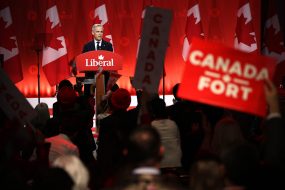
Labour has made a remarkable comeback in the recent election, securing its first victory in 19 years and appointing Keir Starmer as the new Prime Minister. This historic win has pushed the Conservatives aside and marked the beginning of a new era under Starmer’s leadership.
Keir Starmer’s Vision for Renewal
In his inaugural speech at 10 Downing Street on July 5, Starmer promised to initiate changes aimed at restoring the nation’s confidence. His commitment to renewing the nation and regaining public trust reflects the critical role of a new prime minister’s initial actions, which often leave a lasting impact.

Historical Context: The Weight of Early Decisions
The actions of new prime ministers have historically shaped the nation’s trajectory. Clement Attlee transitioned from wartime deputy prime minister to Labour prime minister in 1945. He offered the nation a peacetime version of Churchill’s “blood, toil, tears, and sweat.” This led the UK through an age of austerity to rebuild its war-torn economy.

In contrast, the austerity measures post-2010, driven by the Conservative-Liberal Democrat coalition and championed by then-Chancellor George Osborne, were based on a misleading economic premise. The financial crisis was blamed on Labour’s alleged overspending, while the real culprit was the banking crisis. This false narrative justified severe cuts in public services, leading to widespread public dissatisfaction.
The Electorate’s Verdict on Austerity
The recent election result reflects the electorate’s reaction to the cumulative impact of austerity. The strain on the NHS, deteriorating railways, overcrowded prisons, polluted rivers, and soaring poverty have fueled public anger. Keir Starmer capitalized on these grievances, highlighting the Conservatives’ dismal record while focusing less on addressing the Brexit-related economic woes.
Lessons from the Past: The Importance of Decisive Action
Historically, the early inaction of prime ministers has had negative consequences. Harold Wilson’s refusal to devalue an overvalued pound in 1964 led to economic misalignment and forced deflationary measures, ultimately culminating in a reluctant devaluation in 1967.
This at a time when the think UK in a Changing Europe has concluded that Labour’s existing plans to improve our trading relationship with Europe will have “minimal” impact on reducing the huge and mounting costs of Brexit. And when the same thinktank finds that 78% – repeat, 78% – of Labour voters say they would vote for a return to the EU!
Keir Starmer – The British Prime Minister

Similarly, Starmer’s recent decision to rule out rejoining the EU, the single market, and the customs union, despite the significant economic costs of Brexit, echoes Wilson’s error. This stance, despite Labour’s manifesto commitment to tearing down unnecessary trade barriers, poses a potential barrier to the UK’s economic growth.
Constructive Criticism and Future Prospects
While this critique aims to be constructive, it is essential to acknowledge Starmer’s remarkable achievement in making Labour electable again. The succession of ineffective Conservative governments had set the stage for Labour’s comeback. However, Starmer must address the EU issue more pragmatically. Historical precedents, such as Chancellor Helmut Kohl’s unexpected achievement of German reunification in 1990, demonstrate that political realities can change rapidly.
In conclusion, Keir Starmer’s early moves as Prime Minister will significantly shape the nation’s future. His ability to navigate complex issues like Brexit while addressing public grievances will determine the success of his tenure. Labour’s victory marks a promising start, but the real test lies in the effective implementation of policies that bring about meaningful change. Follow for more!












